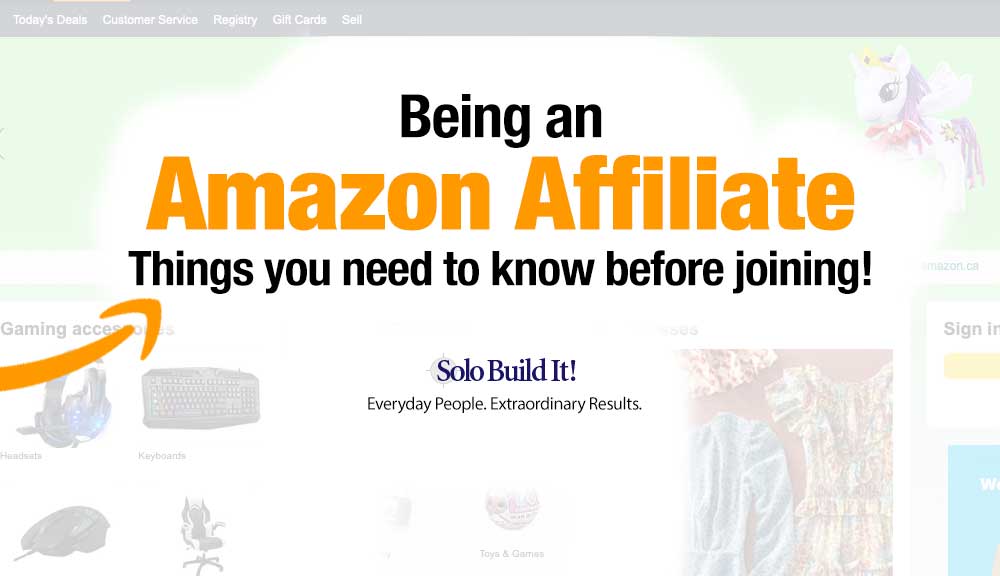
There are both pros and cons of being an Amazon affiliate. I’ve been an Amazon associate for many years and have weathered the ups and downs of the experience. I’ll share with you here what I’ve learned, so you can decide for yourself whether partnering with Amazon is the way to go for you.
Before we go into all that, here’s the one thing that is the most important – there’s no point in becoming an Amazon affiliate unless you have plenty of free, organic traffic. In fact your account can be rejected at the end of the first 180 days if you haven’t made at least 3 sales.
Quoting from Amazon’s application review process:
“After you sign up, our Associates team will check your application once you’ve driven qualified sales (we require at least three within the first 180 days).“
Therefore, it’s important that you build your traffic before you join the program, as Amazon doesn’t give second chances.
I’ll give you a tip about how to build that traffic at the end.
Let’s start with the “Cons” to get them out of the way, then I’ll tell you the good things about this affiliate program.
Five “Cons” of Being an Amazon Affiliate
1. Poor Commission Rates and Short Cookie Period
Over the years, Amazon reduced their commission rates repeatedly, which means that they are now some of the poorest in the market.
The rates range from as little as 1% for categories such as Groceries, Health and Personal Care, up to 20% for Amazon Games. The majority of items fall into the 3% or 4% range although they do occasionally increase commissions for short periods as a promotion.
When you compare this with Etsy at 5% or Zazzle at 15% referral commission, it’s pretty low. But Amazon makes up for it with a high conversion rate and sheer volume of sales.
The cookie period (which means the amount of time after the customer enters the site from your link until Amazon will cease paying out a commission for any sales) is only 24 hours. Other affiliate marketing programs range from 30 days to unlimited.
2. Obsolescence
What I mean by this is that Amazon links and widgets seem to go out of date on a fairly regular basis. On the face of it, the custom search results widgets, for example, seem a great idea.
But often I’ll look back at a widget after a period of time and find that they’re not showing relevant search results or they’re only showing two results instead of four. You need to keep on top of what visitors are seeing on your website.
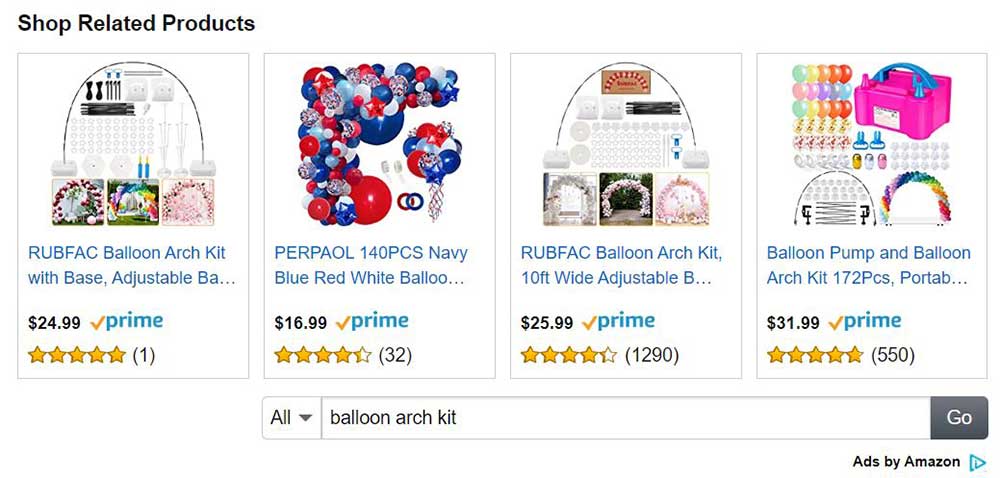
In addition to this, products sometimes go out of stock, or companies discontinue products or move them away from the Amazon platform.
For this reason, it’s a good idea to link to search results rather than individual products. Or schedule time to monitor your product links.
3. Payment Methods
Amazon is one of the few affiliate programs that refuses to use PayPal. They offer bank deposit to most countries or credit to spend on Amazon itself.
The thing I have found most annoying (which may not apply to you) is that in some countries, such as Australia where I live, they still only pay by check. This is infuriating, because it takes 6 weeks for the check to arrive (if it actually does and you don’t have to get onto support for them to send you another one – which takes a further six weeks).
Then, the banks will take about 2 to 3 weeks for the check to clear and charge you anything from $10 – $18 to process it. I got around this by getting paid to a family member’s account in the UK, but then I pay for the money to be exchanged twice.
4. Separate Payment for Each Country
Another gripe about payment is that you get paid separately for each country. To reach traffic in more than just the USA, you need to apply and join all the different countries’ programs.
Currently I belong to the programs of the USA, UK and Canada. I have to reach the payment threshold for each of these countries separately before I get paid.
Compare this to eBay, which has one global program and one payment no matter from where on the planet the sales originate.
5. Ethics of the Company
Some may feel uncomfortable promoting Amazon. It doesn’t have the best track record of looking after its employees. Tax avoidance is another issue. There are quite a number of ethical issues for Amazon, which may make you think twice about promoting them.
These days though, Amazon doesn’t just sell its own products. It’s a marketplace for thousands of individual brands selling their goods on Amazon, so you may well find items that are environmentally friendly and ethically produced within the Amazon marketplace. Of course, Amazon will still be taking its cut.
You’ll need to weigh up with your own conscience whether you want to promote Amazon or not.
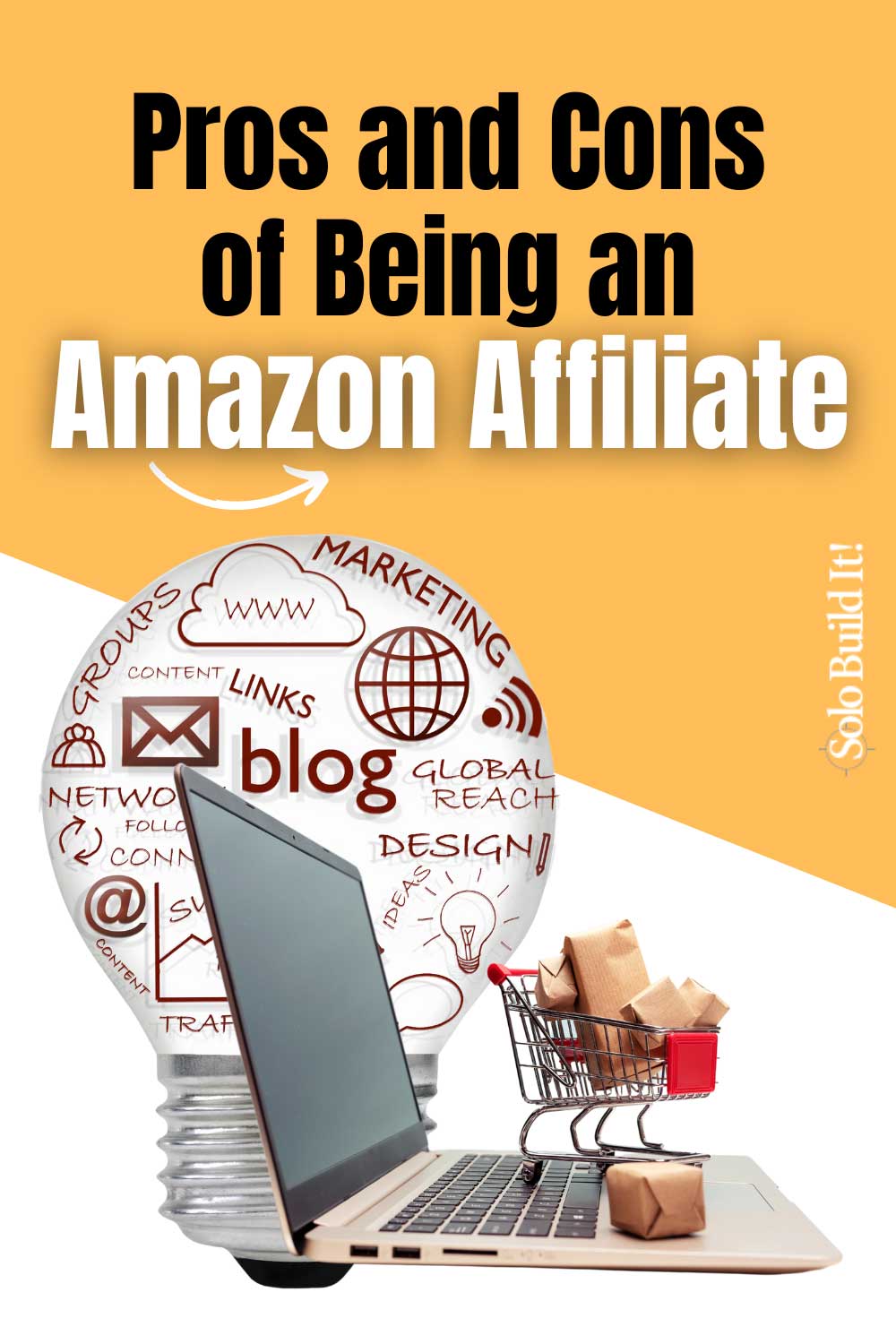
Five “Pros” of Being an Amazon Affiliate
1. Well-known Global Brand
Let’s face it, everyone has heard of Amazon, and most people have purchased from it. It’s a trusted brand, and has built a reputation for fast and cheap shipping and good customer service.
2. Convert Well
For the reasons stated in number 1, Amazon is extremely good at converting traffic into sales. Its average conversion rate is 9.87%, which compares with 1.3% for other online retailers. One reason it converts so well is its “Customers also bought” suggested items at the bottom of each page.
3. Huge Range of Products
People often enter Amazon through an ad for one item, and end up buying something else. This is probably the most important reason for using Amazon as part of your diversified affiliate marketing efforts.
The sheer range of goods available, and Amazon’s efficiency in presenting them to visitors once they’re on the site, means that your referred customer is highly likely to buy something.
It’s always easy to find a product on Amazon to match any of the content you’re writing, which is convenient. I usually offer recommended reading on any topic I’m publishing a page on.
You can also find related gifts, accessories, hobby equipment, etc. The range is limitless.
4. Good Affiliate Support
The few times I had to contact the support desk, they responded fairly quickly, i.e., within a day or two, and they always resolved the issue. This is comforting when checks go missing! So although I dislike the payment method, at least the support was there when it went wrong.
Considering what a massive organization Amazon is, this level of support for its associates is impressive.
5. Range of Linking Methods
The Amazon associates program is user friendly. It’s simple and free to join, and Amazon provides easy ways to link to products directly from the sales website.
Browse to a product. Once you’re logged in to your affiliate account, a SiteStripe appears up at the top where you can quickly pick up a text link, an image or both. Amazon also has what it calls a “Card Type – Native Shopping Ad,” which looks like this:
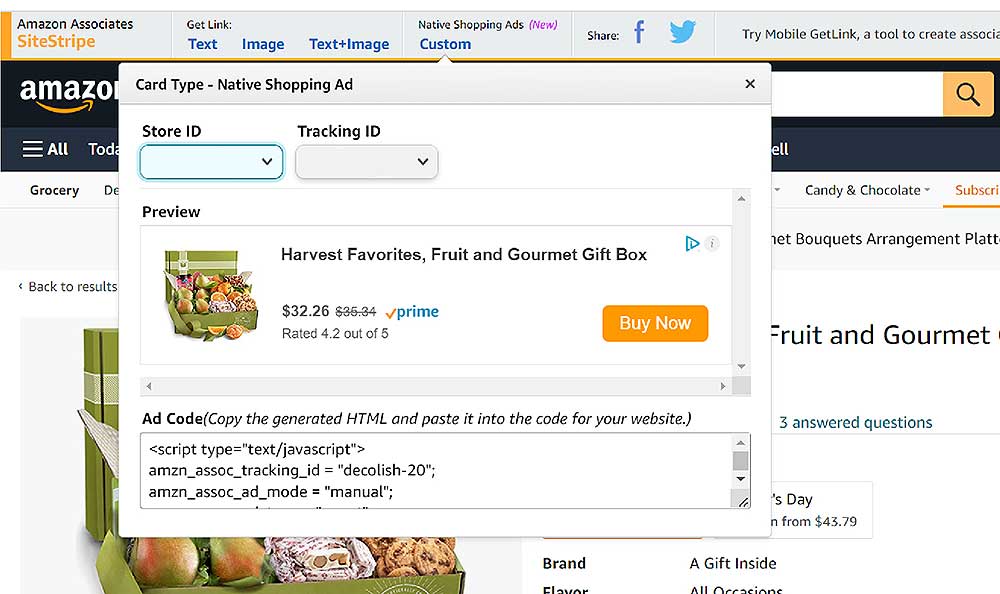
You can pick up the code for that native shopping ad in the same place.
From the product linking tab within your associates account, you can choose from a wide range of banners for any of the categories.
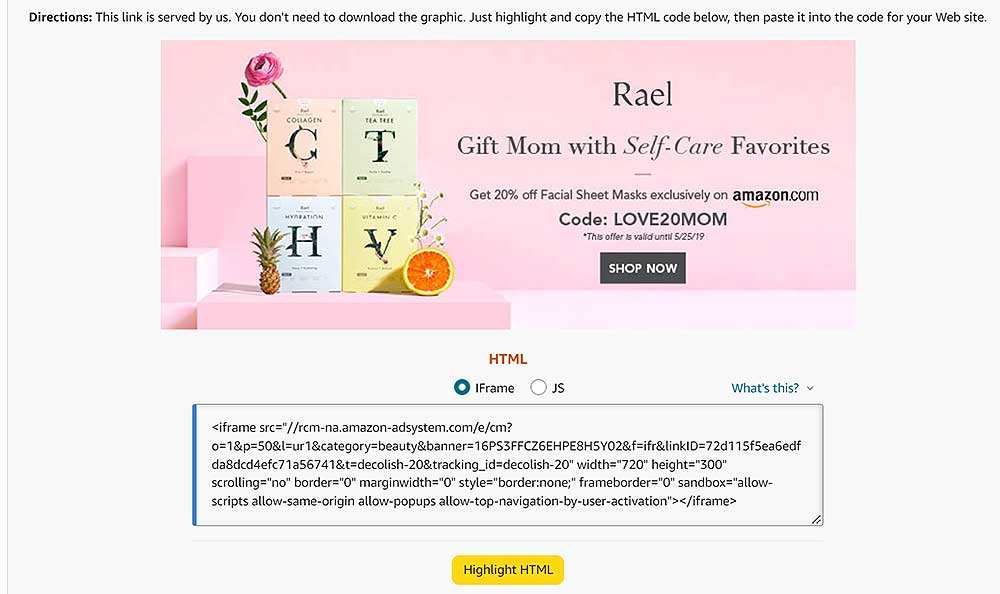
You can link to specific pages and you can create custom ads. There is even a “mobile popover” option, though I have to admit I haven’t tried that one yet.
To Be a Successful Amazon Affiliate, You Need Traffic!
When considering the pros and cons of being an Amazon affiliate do consider these important points as well. To make decent money from affiliate marketing, you need access to lots of people on the internet. The best way to build long-term, reliable traffic is to have your own website.
By long-term and reliable, I mean traffic that truly belongs to you and doesn’t rely on the vagaries of Facebook or Instagram, both of which can restrict your access to your followers at any time.
The joy of a content-based website of your own is that you can work on something that you love, at your own pace, and the traffic belongs to you.
The power of an email list, built up from that website traffic, is inestimable. And it doesn’t cost you a fortune in advertising.
I knew absolutely nothing about building a site or how to promote my website for free on Google when I started, and I went from zero knowledge to over 6,000 visitors a day.
How did I do this? I chose Solo Build It!, a platform that provided everything I needed in one place: site-building and keyword research tools, secure hosting, domain name registration, support, forums and — perhaps most important — a step-by-step process that even a beginner like me could follow.
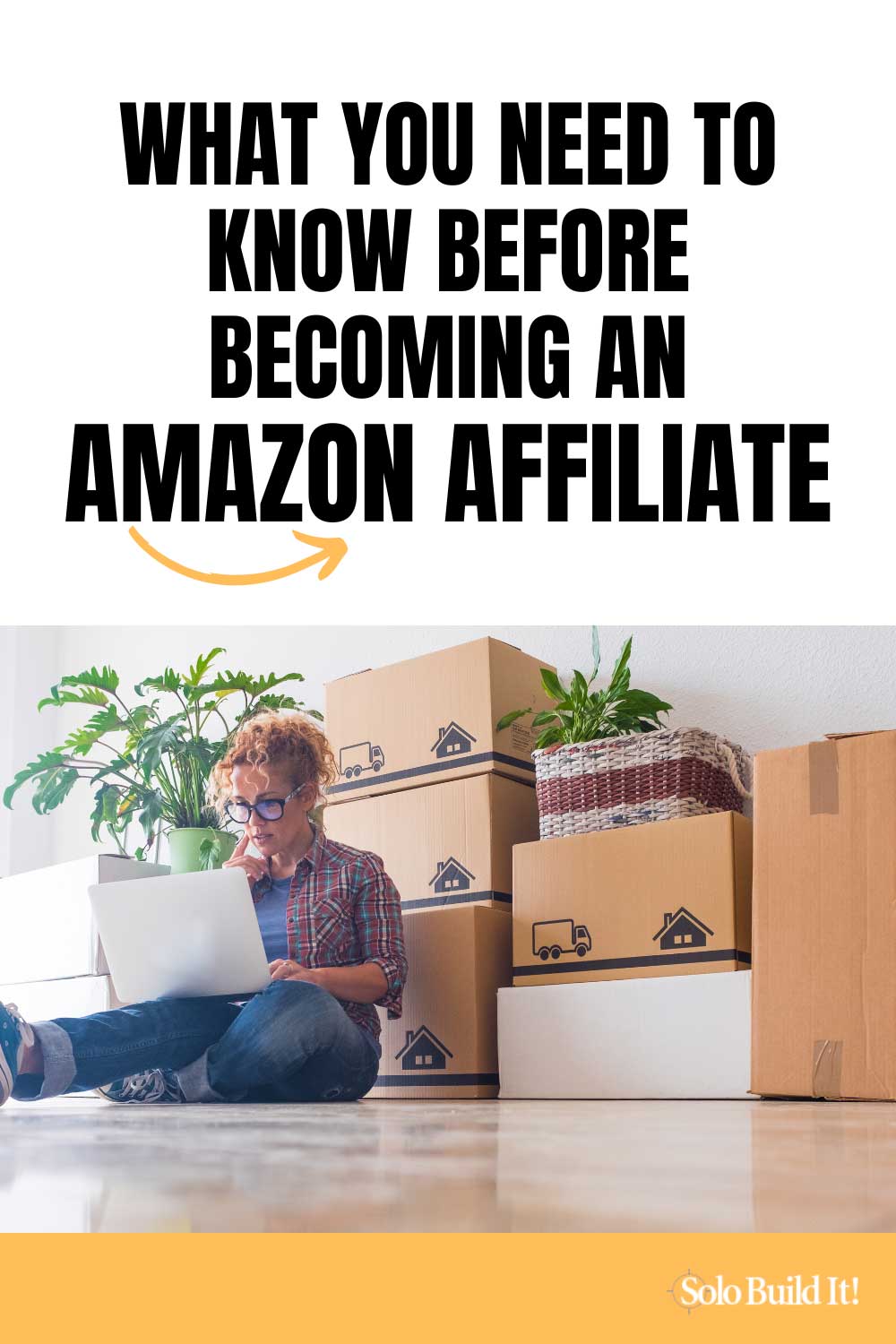
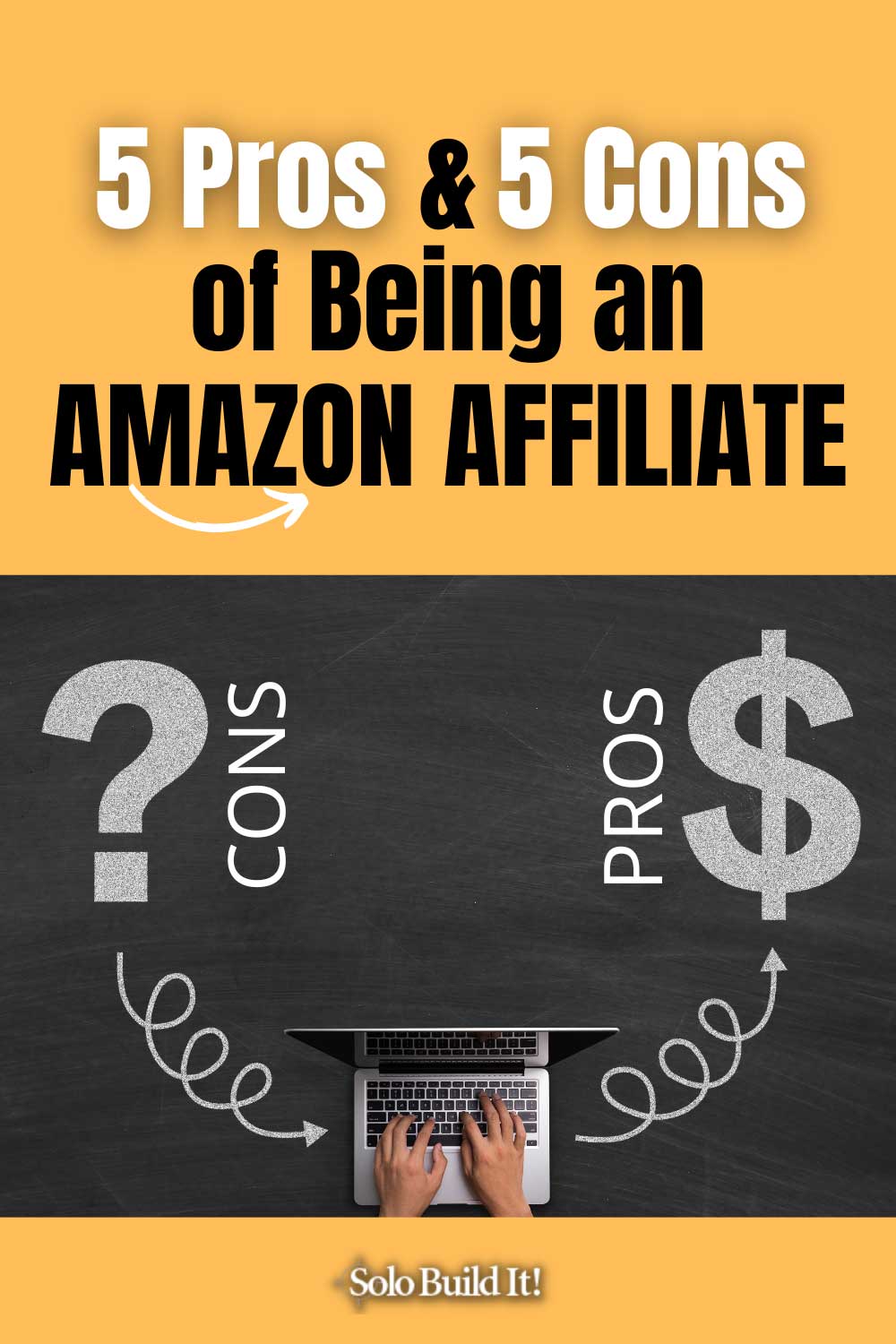

Latest posts by Lesley Postle (see all)
- Pros and Cons of Using Zazzle: A Seller’s Guide to Success - May 23, 2024
- Working From Home With Chronic Illness: 10 Proven Tips - August 25, 2022
- How I Thrived When Forced to Quit My Job Due to Chronic Illness - August 4, 2022


